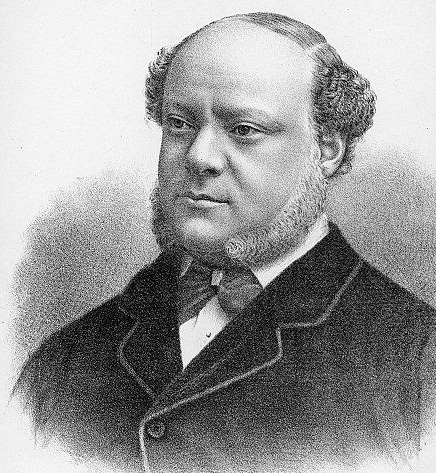Randegger, Alberto, 1832-1911
Enlarge text Shrink text- His Joyous life, 186-.
- Thomas, A.G. Esmeralda, 1900 (a.e.)t.p. (Alberto Randegger) [Info. from InU]
- Thomas, A.G. Esmeralda, 1883?:t.p. (A. Randegger) [Info. from InU]
- NUC Pre-1956(Randegger, Alberto J., 1832-1911) [Info. from InU]
- Grove(Randegger, Alberto; b. 4/13/1832; d. 12/18/1911; conductor, singing master, composer) [Info. from InU]
Alberto Randegger (13 April 1832 – 18 December 1911) was an Italian-born composer, conductor and singing teacher, best known for promoting opera and new works of British music in England during the Victorian era and for his widely used textbook on singing technique. His compositions included ballets, masses and other church music, operas and numerous other vocal pieces. He also edited several collections of vocal music. He began his composing and conducting career in Italy, where he knew Giuseppe Verdi, but in 1854 he moved to London, which became his base for the rest of his life. From 1857 he conducted Italian opera at the St. James's Theatre and was professor of singing at the Royal College of Music and the Royal Academy of Music, retaining both posts for the rest of his life. From 1859 to 1870 he was organist at St Paul's Church, Regent's Park. Randegger served as musical director of the Carl Rosa Opera Company from 1879 to 1885, gaining a reputation for high quality productions, and helping to revive interest in opera in England. He also became conductor of the Norwich Musical Festival, which he directed until 1905. From 1885 to 1887, he conducted Henry Leslie's Choir. In the 1890s, he conducted at Queen's Hall, the Theatre Royal, Drury Lane and the Royal Opera House, where he became known for his performances of Wagner, Verdi and Mozart operas. His most enduring legacy was a textbook titled Singing, published in 1879.
Read more on Wikipedia >
 Personality
Personality




